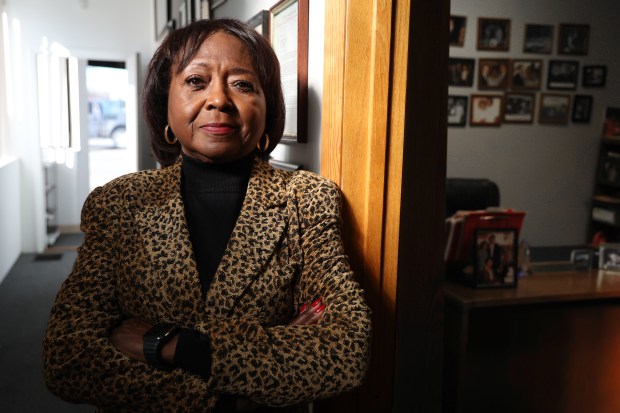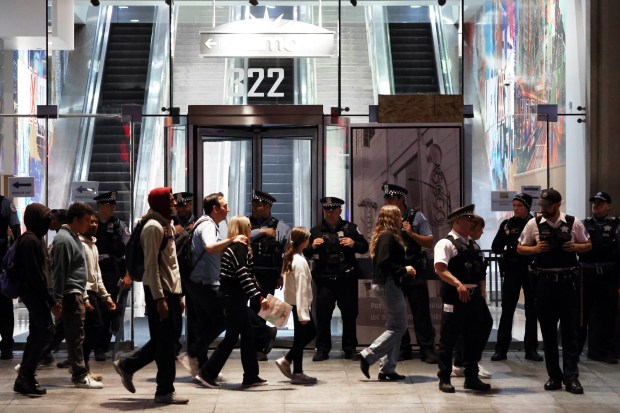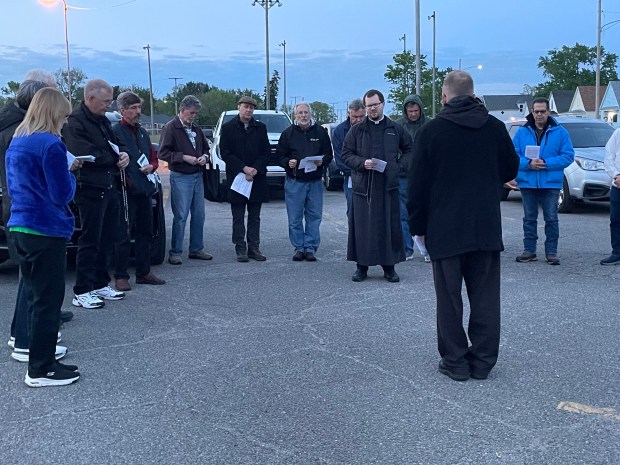Two Democratic primaries for seats in the Illinois General Assembly featured races testing the political influence of House Speaker Emanuel “Chris” Welch and Senate President Don Harmon, with one attempting to oust a House veteran and the other supporting a Senate newcomer.
Without having to worry about losing their supermajorities in the fall’s general election, both Democratic leaders have made heavy political and financial investments in two bare-knuckled legislative contests based in Chicago.
Welch, the state’s first Black speaker, is putting his reputation on the line as he seeks to oust the dean of the General Assembly — Rep. Mary Flowers, an African American South Sider who joined the House in 1985 as a fervent ally of Harold Washington, Chicago’s first Black mayor. The Welch-backed challenger is Michael Crawford, a campus official of The Chicago School, a private college.
Harmon, in contrast, is attempting to defend appointed incumbent Sen. Natalie Toro in a Northwest Side contest for the seat in which she replaced former Sen. Cristina Pacione-Zayas, who stepped down last year to work as Mayor Brandon Johnson’s deputy chief of staff. Toro’s most formidable opponent is a former legislative staffer for Pacione-Zayas, Graciela Guzmán, an organizer for the Chicago Teachers Union, which delivered Johnson’s mayoral victory.
Democrats, who hold a 78-40 majority in the House and a 40-19 advantage in the Senate, are in no danger of losing control of either chamber in November’s general election.
But wins in the primary intramural battles in Chicago’s Democratic stronghold are tantamount to local district victories in November, similar to intraparty Republican primary contests in deep conservative pockets of central and southern Illinois.
While votes were still being counted Tuesday evening, the biggest question in the Flowers and Toro races will be whether money made a difference.
The Welch-backed effort to defeat Flowers saw more than $1.5 million in donations to Crawford. Nearly $600,000 of that total came from Welch and other House Democratic allies and far outpaced Flowers’ political war chest, records show.
As a result, the contest came down to whether Flowers’ ground game and name recognition could overcome the speaker and his allies pouring in big money to beat her.
The rarity of Welch’s move to go all out against an incumbent Democrat is of particular note because, all in all, Flowers’ track record is one of a veteran Democrat who took many tough votes over her decadeslong career.
It is a far different dynamic from ex-Speaker Michael Madigan’s successful effort in 2016 to knock off then-Rep. Ken Dunkin, a Chicago Democrat who had sided with Republican Gov. Bruce Rauner on key votes.
Welch and his acolytes have blasted Flowers, accusing her of going off topic in caucus meetings and pointing out she once said a staffer resembled Adolf Hitler.
Flowers acknowledged in an interview on WVON-AM she made the Hitler comment but suggested her removal from leadership was unfair.
In an interview with the Tribune, her central argument for reelection was that she has the institutional wisdom of nearly four decades in lawmaking and that there is a “generation of people that I helped” in the communities she’s represented. Chicago television has been saturated with anti-Flowers ads in the effort to bolster Crawford’s campaign.
In the Senate, two other candidates in the race with Toro and Guzman are Dr. Dave Nayak, who manages a Grundy County farming business and runs a free asthma and allergy clinic in Chicago’s Roscoe Village neighborhood, and Geary Yonker, a community organizer in Logan Square who has also worked as an executive for the Chicago Reader and WBEZ-FM 91.5.
Toro was appointed to Pacione-Zayas’ Senate seat through a process in which Democratic Party insiders got to decide on the replacement through weighted votes based on where ballots were cast within the district. In Toro’s case, Cook County Circuit Court Clerk Iris Martinez, who once held the Senate seat, played an integral role in helping get Toro that seat.
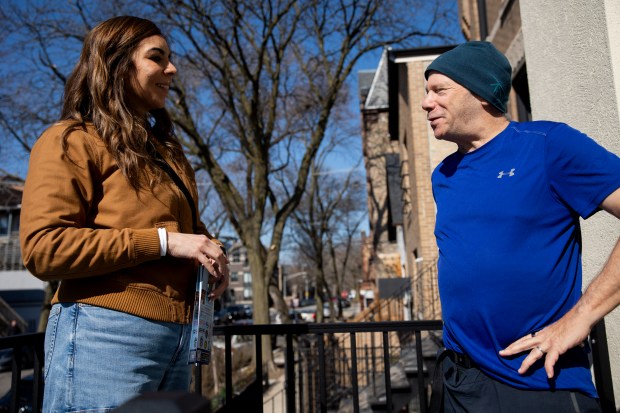
In recent months, Toro collected more than $1.8 million from Harmon-related Democratic political committees alone, records showed.
Guzman, whose support includes Cook County Board President Toni Preckwinkle, the county Democratic Party chair, and U.S. Sen. Bernie Sanders, the former Democratic presidential candidate from Vermont, has collected hundreds of thousands of dollars, including from teacher-related unions.
Nayak has mostly bankrolled his campaign, loaning his political fund about $800,000. Yonker has raised significantly less than his opponents.
The winner of the contest will face Republican Jason Proctor, who is running unopposed in the GOP primary for the seat, in the November general election.
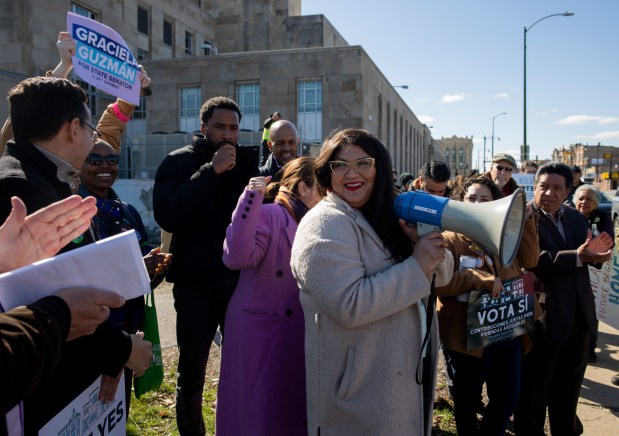
In another Democratic legislative primary race in Chicago, Rep. Theresa Mah, who has held her South Side seat since 2017 as the first Asian American elected to the General Assembly, is trying to stave off a challenge from Lai Ching Ng, an analyst for the Cook County Board of Review.
The winner will square off against Republican Natalian Bolton, who had no opponent in the GOP primary.
Other closely watched area Democratic primary contests included the race to succeed Rep. Kelly Burke of Evergreen Park, who is stepping down after serving more than a decade in the House.
The two Democrats vying to replace Burke were Rick Ryan, an Evergreen Park attorney, and Sonia Anne Khalil, a cancer survivor from Palos Hills whose father, Samir Khalil, chairs the Arab American Democratic Club.
The winner will face Republican Christine Shanahan McGovern of Oak Lawn, the lone GOP primary candidate seeking Burke’s seat.
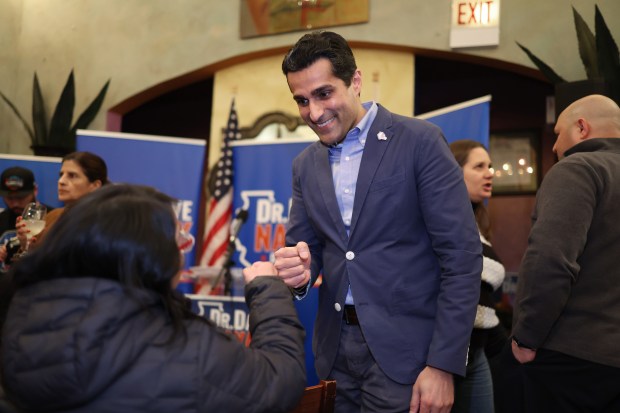
In the western suburbs, freshman Democratic Rep. Matt Hanson is hoping to hold off a challenge from Arad Boxenbaum, who sits on the Geneva Public Library Board and lost to Hanson in 2022.
The race represented the first for Hanson since he pleaded guilty late last year to drunken driving.
Farther south, Democratic Sen. Patrick Joyce of Reddick faced primary challenger Kimberly Earling of Braidwood in a district stretching from Chicago’s south suburbs and into most of Kankakee County and parts of Grundy County.
The winner faces Braidwood Republican Philip Nagel, who ran unopposed in the primary and was beaten by Joyce in 2022.
Chicago Tribune’s Ray Long contributed.


